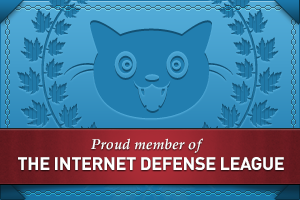 Parabens are chemicals found in natural foods like beans, carrots and cucumbers, and man-made parabens have been used to preserve everyday products from toothpaste to cosmetics for more than six decades. However, some believe paraben preservatives could pose health risks – whilst the cosmetic industry deny there is cause for concern, governments decline to ban them, and regulatory bodies continue to sanction their use.
Parabens are chemicals found in natural foods like beans, carrots and cucumbers, and man-made parabens have been used to preserve everyday products from toothpaste to cosmetics for more than six decades. However, some believe paraben preservatives could pose health risks – whilst the cosmetic industry deny there is cause for concern, governments decline to ban them, and regulatory bodies continue to sanction their use.
So is this just another peripheral debate among the ‘worried well’, or breaking news of a fresh health scandal? Perhaps it’s time to examine the facts …
The paraben family
Parabens are derived from para-hydroxy-benzoic acid, a compound which occurs in blackberries and raspberries. Their most-prized attribute is an ability to inhibit the growth of moulds and bacteria, which makes them ultra-effective preservatives. Synthetic manufactured versions of natural-world parabens are the most commercially viable, and in this form they are extensively used by the cosmetic and pharmaceutical industries to keep products fresh for longer, on the shelf and in the home. The most frequently used paraben compounds are butylparaben, ethylparaben, heptylparaben, methylparaben and propylparaben.
Most family bathrooms contain paraben-treated products such as shampoos, skin-care creams and lotions, tanning preparations, shaving products, make-ups and much more. In addition, anti-bacterial parabens are used to prolong the effective life of medicines, and also as food additives.
Research perspectives
As far back as 2004, Philippa Darbre’s research team detected parabens among cancer cells in 90 per cent of the breast tumour tissue samples they examined. Though researchers carefully avoided labelling these as carcinogenic, the popular perception was that parabens might still be ‘in the frame’. Despite widespread interest in these findings, this research has been criticised by sceptics in the scientific community for not taking the logical step of also testing a comparative sample of normal tissue. Faced with no real evidence of a harmful connection, those concerned about parabens could only say the outcome warranted more investigation.
Another strand of the paraben debate notes that animal testing has demonstrated parabens have a ‘weak ability to mimic oestrogens’, which are themselves implicated in the development of breast cancer. However, checking the data reveals the paraben quantity tested was 25,000 times greater than the tiny amounts used as preservatives. Likewise, the observed paraben effect was 100,000 times weaker than the action of estradiol, a natural hormone responsible for the creation of female reproductive tissue.
Public safety verdicts
Whilst labs have replicated Dabre’s results, no study has shown parabens have adverse health effects. Even so, some suspicions remain and paraben-free alternative products are now available for those still nervous or exposed to much greater risk. Summarising recent work, a 2013 study led by Gerhard concluded: ‘Despite 20 years of research a human health risk from exposure to low concentrations of exogenous chemical substances with weak hormone-like activities remains an unproven and unlikely hypothesis.’
Such conclusions, plus their own tests, have been enough to convince supervisory health watchdogs in the USA, Canada, the EU and elsewhere that parabens are safe in their present forms of low-level use.
Risk assessment
It’s not always easy to stay level-headed where risk is concerned. However, looking at the theoretical ‘paraben risk’ in comparative terms can be helpful and informative. For example, the Golden, Gandy & Vollmer review, published in 2005, concluded that even ‘worst-case daily exposure to parabens would present substantially less risk [than] naturally occurring endocrine-active chemicals in the diet.’
Nevertheless, the greatest independent source of informed and reasoned reassurance is likely to be your family GP who knows your medical history. Not only can you air your own concerns, you can also enquire whether your doctor would recommend you adopt a paraben-free lifestyle, and indeed whether he/she personally does the same.
In Pure Spirit
Are you reassured about parabens or still concerned?
Image credit: ParentingPatch

Join the conversation